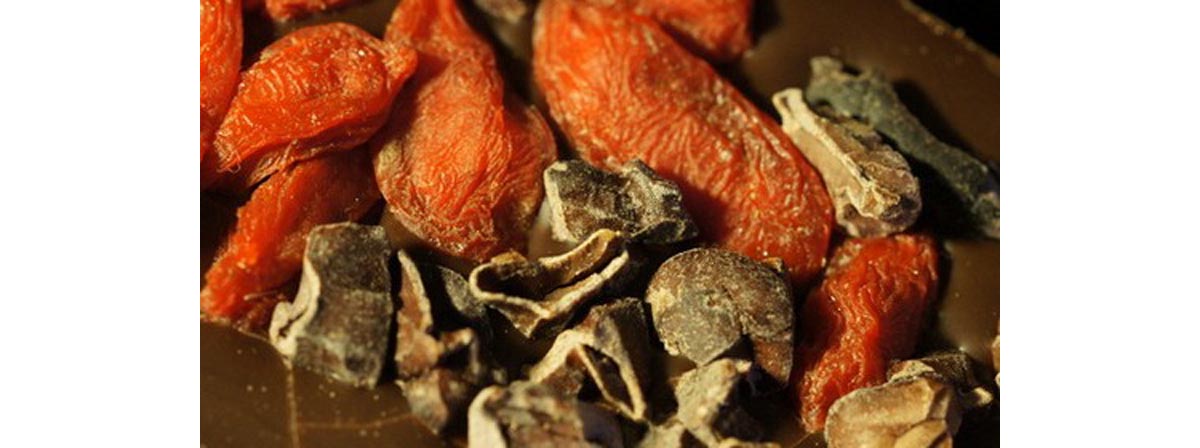With the growing number of people pursuing healthy lifestyle and conscious about food they eat, antioxidants are becoming more and more popular. Any self-respecting food producer announces the antioxidant contents of his produces. Production of antioxidant supplements has grown into an independent huge multimillion dollar industry.

Marketing and science speak different language
Unfortunately, science and marketing are not necessarily speaking the same language. Many claims used by healthy food advertisers make very little scientific sense. Claims like “100% Vitamin C” on the bottle of energy drink do catch attention of customers and certainly increase the sales of product but leave anyone with proper scientific background profoundly confused.
Indeed, the addition of some vitamins to this drink does increase its antioxidant content and can supply you with necessary daily dose of vitamin C. It does not mean, however, that the energy drink in question are so remarkably reach with vitamin C or even healthy at all. The same daily dose can be obtained by eating just one single orange.
There is a marketing wisdom behind such claims, however. Studies do show that mentioning the word “antioxidant” on the package strongly increases the products’ sales. Positive perception of products takes its roots in consumer’s psychology. Marketing campaign has successfully made us believe in antioxidants and their importance. Antioxidant industry is currently estimated to be worth $500 million and continues to grow.
Products like energy drinks, sport bars, yogurts, milk and chocolate with addition of antioxidants have better chances to be sold even for higher price. The fact is, many of these processed foods are not necessarily as good for your health as the old fashioned but boring fruits.
Antioxidants not necessarily make your diet healthier
Since antioxidants are healthy, many customers assume that taking lots of antioxidant supplements will bring significant health benefits. Unfortunately, this opinion is simply not supported by any scientific evidences. For instance, if you are taking antioxidants with the aim of preventing heart disease, the chances are that you are wasting your money.
Taking large doses of antioxidants can even be dangerous. The results of studies published in 2005 have shown that vitamin E supplementation led to higher risk of heart failure. In another study, beta-carotine was increasing the chances of developing the lung cancer among heavy smokers.
New generation of Superfoods lacks proper scientific backing
New fancy antioxidants-rich natural products are flooding the healthy food shops these days. So-called “superfruits” and “superfoods” such as goji berries, mangosteen, acai, aronia, noni juice, blue-green algae, baobab fruits are just few examples of some recent additions. These and many other new products are quickly becoming popular.

The price tags attached to the products from reliable and reputable suppliers rarely stay below 20 dollars for the one month course of each supplement. These products contain a variety of other antioxidants, for example various polyphenolic compounds, in addition to traditional vitamin C. Do they really work better as antioxidants in our body? This is far from clear. The problem with all these new additions is that nobody have done any proper research on their actual benefits. There are little doubts that these supplements are beneficial, at least to a certain degree. The question is, do they really represent a value for money, or you can achieve pretty much the same results with simple and cheap vitamin C-based supplements?
At present, nobody can give a definite answer to this question.
When they were done on humans, they usually had short duration and were performed on people with existing medical conditions. The latter leave open the question about the ability of antioxidants to prevent diseases in the first place.
Healthy lifestyle and placebo effect
Two other important aspects of antioxidant supplementation should be kept in mind by any rational person. Doctors are well aware of placebo effect: when we are sure that we are doing something right, it tends to bring the expected results. At least to some degree. All proper clinical trials nowadays are blind and randomized, which means that patients don’t know whether they are taking a real drug or an innocent pill with neutral and harmless content. This is done with the sole purpose of avoiding the placebo effect. The influence of placebo effect on people taking antioxidants cannot be ruled out but is hard to prove in the absence of properly organized trials.
The defenders of antioxidant supplementation often argue that most people who take them regularly are indeed healthier. The problem is that most of this people practice a variety of other healthy habits such as physical exercises and balanced diet. It is hard to say to which degree antioxidant supplementation contributes to their better health.
So should we take antioxidants? In those cases when they are clearly proven to work – yes. When the evidences are limited and circumstantial it’s better to stick to well-balanced diet reach on fruits and vegetables. When it comes to the new widely advertised super-supplements, I would seriously think about the financial ingredient first.
- Lonn E, Bosch J, Yusuf S, et al. Effects of long-term vitamin E supplementation on cardiovascular events and cancer: a randomized controlled trial. JAMA. 2005
- 293:1338–47
- Dietary supplementation with n-3 polyunsaturated fatty acids and vitamin E after myocardial infarction: results of the GISSI-Prevenzione trial. Gruppo Italiano per lo Studio della Sopravvivenza nell’Infarto miocardico. Lancet. 1999
- 354:447–55
- Albanes D, Heinonen OP, Taylor PR, et al. Alpha-tocopherol and beta-carotene supplements and lung cancer incidence in the alpha-tocopherol, beta-carotene cancer prevention study: effects of base-line characteristics and study compliance. J Natl Cancer Inst. 1996
- 88:1560-70
- Photo courtesy of Doramon by Flickr : www.flickr.com/photos/doramon/3208331427/
- Photo courtesy of Lee McCoy by Flickr : www.flickr.com/photos/chocolatereviews/6898439936/


Your thoughts on this